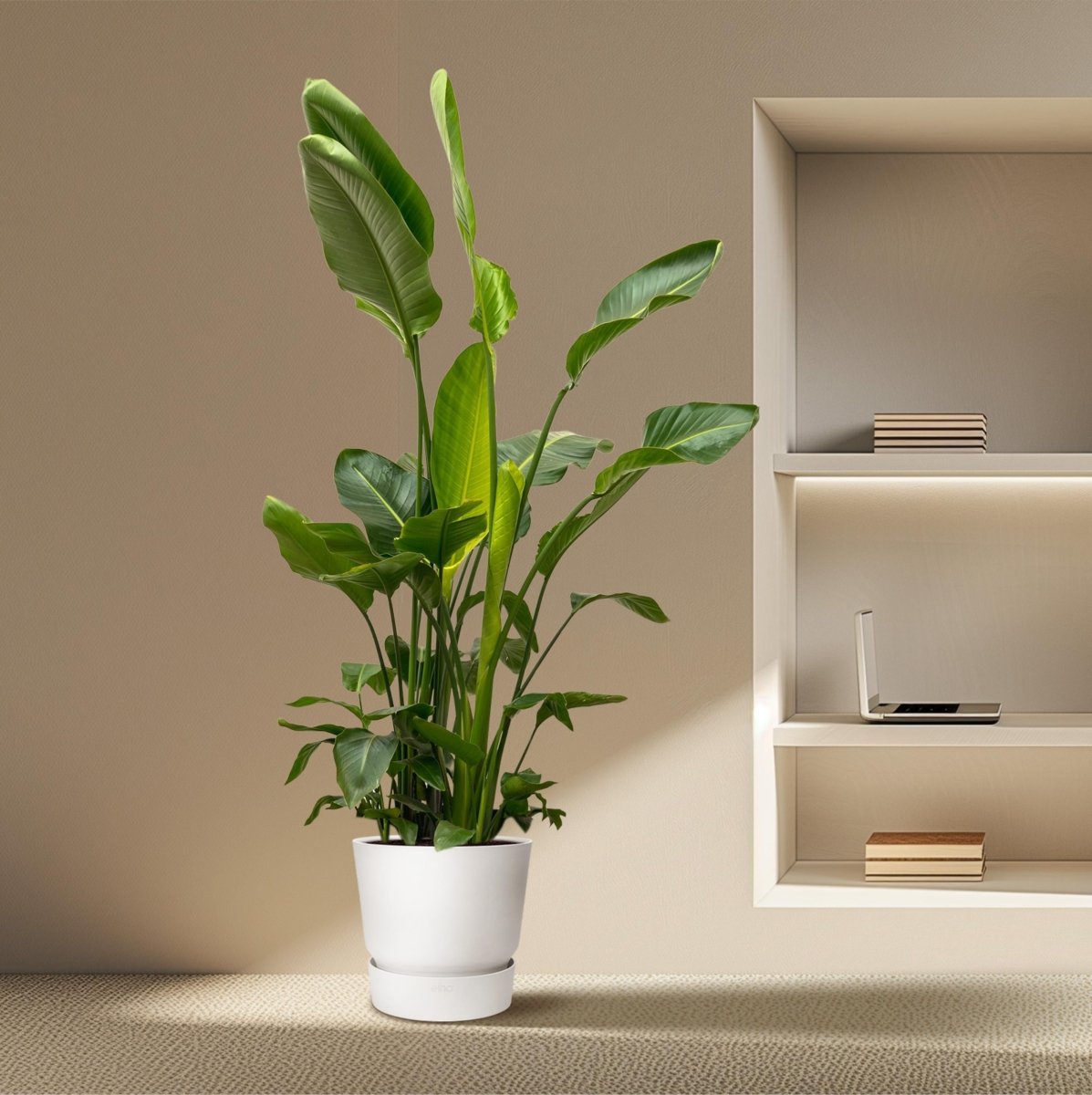Did you know that plants aren’t just beautiful, they also have powerful health benefits? Green plants in your home can improve your well-being in ways you might not have thought. In this blog, you’ll discover how plants can improve air quality, reduce stress, and even improve your sleep. Adding greenery to your interior has many more benefits than you might think!
1. Air Purification: Fresh Air for a Healthy Home
Plants play a crucial role in purifying the air in your home. They absorb carbon dioxide and convert it into oxygen, which significantly improves the air quality. This is especially important in closed spaces, where the air is often stagnant.
- Plants that purify the air:
- Areca Palm (Dypsis lutescens): Known for its air purifying properties and increasing humidity.
- Mother-in-law's tongue (Sansevieria): This plant is particularly effective in removing harmful substances such as benzene and formaldehyde.
- Aloe Vera: This plant is not only good for the air, but also for your skin!
Why is this important?
In modern, well-insulated homes, harmful substances can accumulate, which can lead to respiratory diseases. Plants help to filter these harmful substances, so that your respiratory system remains healthy.
Tip: Place air-purifying plants such as the Areca palm and Mother-in-law's tongue in the bedroom or living room for maximum air quality.
2. Stress Reduction: Rest and Relaxation through Plants
Caring for plants can be a powerful way to reduce stress and calm your mind. Research shows that caring for plants can lower cortisol levels (the stress hormone) and give you a sense of relaxation.
- Caring for your plants creates a calm routine and helps you to disconnect from the busy daily life. Watering the plant, checking for new growth and caring for the roots is a meditative process that helps you to shift your focus from stressful thoughts to the present moment.
- In addition, the visual greenery in your environment brings a sense of peace and harmony, which contributes to your emotional well-being.
- Popular plants that reduce stress:
- Lavender: The scent of lavender has been proven to be calming and can reduce stress levels.
- Aloe Vera: Has a calming effect on both the body and mind, making it perfect for a stress-free environment.
- Ficus: The Ficus is a beautiful, easy-care plant that can help reduce stress.
Tip: Place stress-relieving plants such as lavender or a calming Ficus in a place where you visit often, such as the living room or a home office.
3. Better Sleep: Plants That Promote Rest and Sleep
Plants can also have a positive effect on your sleep quality. Certain plants promote sleep by creating a calming atmosphere and purifying the air.
- Plants that promote sleep:
- Lavender: The scent of lavender is known for its relaxing effect, and studies have shown that it improves sleep quality.
- Jasmine: This fragrant plant is often used in aromatherapy to promote sleep. It has proven calming effects that promote sleep.
- Valerian Root: A lesser-known, but powerful herb that can help improve sleep quality.
Why does this help?
Plants like lavender and jasmine help create a calm, relaxing atmosphere in your bedroom. They also help improve air circulation, which can help improve sleep quality.
Tip: Place lavender or jasmine next to your bed or on a nightstand to improve your sleeping environment and help you fall asleep faster.
4. A Green Oasis for Your Well-Being
A home full of plants is not only a feast for the eyes, but also has numerous health benefits. Plants not only improve air quality, but also help you relax, reduce stress and even sleep better. This makes plants a perfect addition to any room in the house.
Why Plants Are Essential For Your Health
- Increased concentration: Plants can improve your concentration and productivity, especially in work environments.
- Less absenteeism: In offices, plants can help reduce absenteeism by improving air quality.
- Increased sense of happiness: Caring for plants provides a sense of satisfaction and increases your overall happiness.





